There’s a new ten-part series running on Sunday nights called Copper that’s getting all kinds of notice for its Gangs of New York-ish set-up. That’s why I watched it, hoping to see some of that potentially great 19th century slum material redeemed by BBC America. It’s a good title, Copper, so maybe, maybe…
But no. It’s rotten. The first show was nothing but wrong notes struck very hard over and over. Maybe it’ll improve somewhat in future episodes, but I won’t be there to see ‘em.
It starts off with title credits that look uncomfortably like the ones in Guy Richie’s Sherlock Holmes movies, plus the same kind of upbeat Irish tune Richie put over scenes of bare-knuckle brawling. Uninspired, but okay.
Then there we are in the slum, and it’s the slummiest slum since William Hogarth etched his 1751 shocker, “Gin Lane.”
Apparently no one in this slum ever does a neutral thing neutrally—walk down the street, hang out the wash, say “Looks like it might rain”—no, everything must be super-depraved, everyone caught in the act of supreme nastiness, so we get it that Five Points was no garden party.
In other words, it’s not enough to provide the shot of the drunk passed out in his own vomit, there must also be a starving dog that LAPS UP THE VOMIT.
So, it’s 19th Century Slums for Dummies.
Passing through the fake-looking rickety sets all slimed up, and the ragged extras so downtrodden and filthy they’re like the “He’s oppressin’ me!” peasants from Monty Python and the Holy Grail, we zero in on the protagonist. Come to find out he’s an Irish-American cop and Civil War vet named Kevin “Corky” Corcoran. (“Corky”?) He’s hiding in a stable doing some kind of stakeout on the local bank. Dubious hand-held cinematography suddenly erupts at this point, the camera swinging around violently to take in the various poor people sleeping in the stable, as if from a primly shocked point of view: “Good gracious, look at all the poverty—people living like ANIMALS!”
Our Hero, “Corky,” starts peeling a hard-boiled egg, which might’ve been a neutral, regular-life thing to do if he didn’t proceed to make a hammy noble-fellow gesture with it, giving it to the little girl in the stable who’s been eyeing him. The few good deeds in the film are set apart, flower-in-the-dunghill style, so you can further dwell on how low-down and disgusting the slum is.
The hard-boiled egg becomes an actual MOTIF in the show, the Egg of Goodness, if you will. Later, Corky offers some eggs to his Civil War crony Matthew Freeman (Ato Essandoh), a black surgeon, the most brilliant man in Five Points, who is despised on racist grounds. And Freeman accepts the eggs to give to his wife—who likes eggs, he informs us. She has suffered much after the Irish mob lynched her two brothers during the Draft Riots of 1863.
Perhaps these magic Eggs of Goodness will help her heal!
(Personally, I’m against Egg Motifs, unless they’re featured in Marx Brothers comedies, i.e. A Night at the Opera, with Groucho’s insanely repeated line following every item listed in a lengthy food order: “And two hard-boiled eggs. No, make that THREE hard-boiled eggs!”)
A ridiculous amount of Acting goes on in this egg-giving scene. Tom Weston-Jones as Corky seems unable to stop preening, and the little girl, her dress pulled suggestively far off her shoulder, is miming out “prematurely corrupted child prostitute” with all her might. As if we couldn’t get the drift, the kid finally stands up and comes out with it: “Sir, would you like me to pleasure you?”
The writing in general is summed up in that line. Slum kid, presumably with no education, making her offer in the nicely enunciated language of an ambassador welcoming a visiting stranger to Sexland.
Though he’s not new in town, Corky is shocked and appalled. This is confusing, because not only is he supposedly a hard-bitten cop who’s seen it all, his girlfriend Eva (Franka Potente) is the madam of a local brothel at a time when child prostitution was fairly rampant. But it turns out she runs a GOOD brothel, the kind where the grown-up prostitutes seem to enjoy their work, thrashing around wantonly in golden-lit nudie ecstasies. Nobody’d think of sullying children for money there; in fact, it turns out to be the ideal spot to hide the kid-prostitute in safety, knowing nobody will lay a glove on her.
Eva’s brothel is opposed to the BAD brothel, catering to the degenerate elite and run by “the Contessa.” Yes, white hats and black hats are worn ostentatiously throughout, even though the big thrill of the show is clearly supposed to be how vile everything is. Just look how Corky and his fellow “coppers” shoot the bank-robber so they can take his stolen loot! Good heavens, Priscilla, these are crooked policemen!
There are a lot more plot and character developments in the show’s attempt to cover a cross-section of New York society, requiring excursions into upper-class Fifth Avenue drawing rooms where ladies in silk anguish over not having the vote, that sort of thing. Issues of race and gender are not neglected! Lotsa topicality for them that like it—you know who you are, you bastards!
Corky is introduced into one of these drawing rooms where we get a notable scene of exposition, a kind of How-Not-to-Write demo. A toff named Robert Morehouse (Kyle Schmid) explains to the assembled guests how amazing Corky is, because Corky not only saved the toff’s life in the Civil War, where the toff lost his leg, but Corky is also an accomplished former pugilist, and other interesting facts about Our Hero that might be difficult to dramatize efficiently.
If you’re going to go this far, you might as well start the show with a long screen-crawl titled “All About Corky.”
Corky, see, got home from the Civil War to find his wife missing and his daughter dead, which is one reason why he’s so intent on giving Eggs of Goodness to little girls. It’s not a sex thing! But it will keep him busy, no doubt, trying to solve his daughter’s murder and find his missing wife while simultaneously cracking lots of other cases without the benefit of DNA evidence or fingerprints or anything other than brass knuckles with which to interrogate witnesses. Long, dull beatings will clearly be a regular feature of Copper.
This show makes you wonder, is there some sort of jinx on 1860s period pieces set in the Five Points slums? See, Gangs of New York is one of those haunting failures. I can’t get over it; it still gives me a pang every time I think of it. It seemed so filled with potential. Great director, Martin Scorsese; great period and setting and subject; great actor Daniel Day-Lewis. But you remember how it all went terribly wrong, its wrongness exemplified by two mortifying star turns by fat-faced softie Leonardo DiCaprio and airheaded Cameron Diaz. (Daniel Day-Lewis was still great in it, though. He’s got that magical ability to stand tall, talent-wise, in the worst dreck, and he’s always scarily effective in period films. He really seems able to recognize people from earlier times as NOT just like us. He’s the only reason to see Steven Spielberg’s Lincoln movie—trying not to watch anything but DD-L, of course.)
Yet here we are again with the wrong, wrong, wrong. I hereby give up on Gangs of New York and all its false promise!
Read more: BBC America, child prostitution, Copper, crime, Daniel Day-Lewis, Gangs of New York, Martin Scorsese, slums, television, Eileen Jones, Entertainment


Got something to say to us? Then send us a letter.
Want us to stick around? Donate to The eXiled.
Twitter twerps can follow us at twitter.com/exiledonline




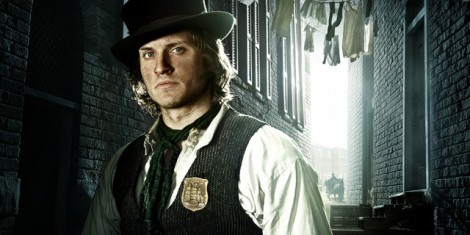
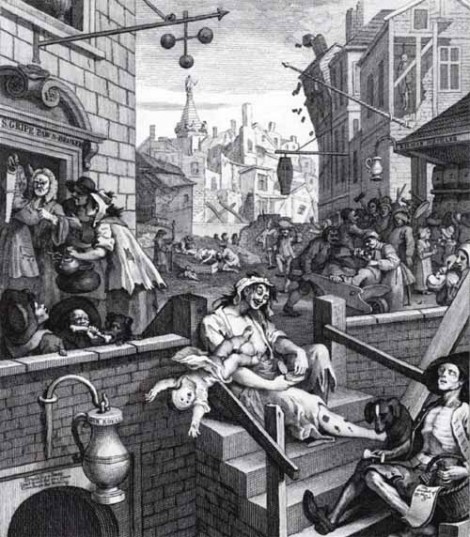
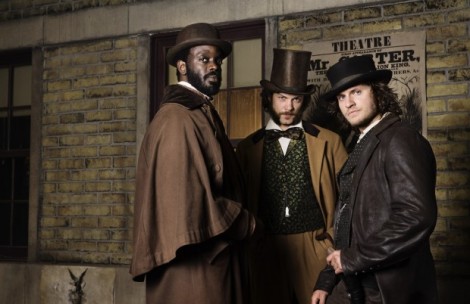
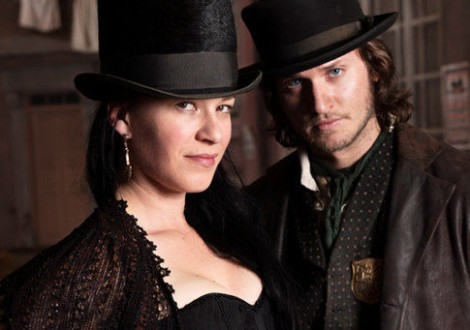
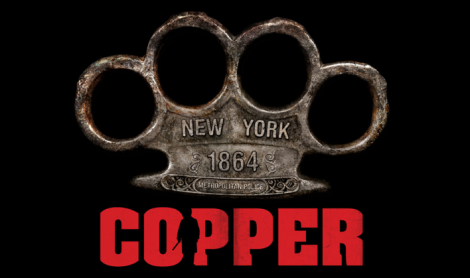
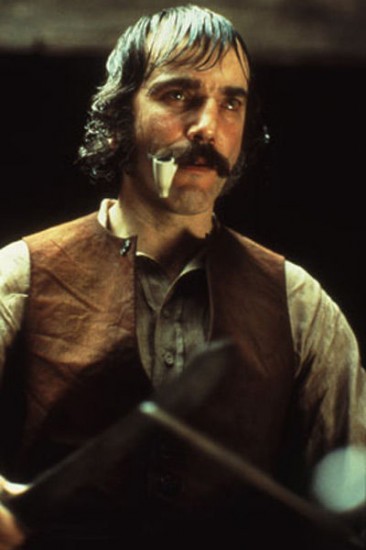

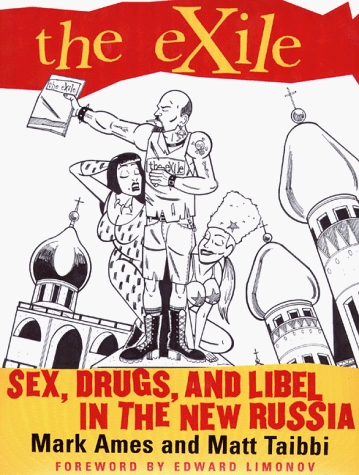









15 Comments
Add your own1. jonnym | August 20th, 2012 at 4:22 pm
Sorry to read this, I thought it had potential. Figures they’d take such a wild and dangerous setting and reduce it to standard good guy/bad guy shit, with the usual “bad guy protagonist isn’t such a bad guy deep down” crap that passes for character development.
Funny how there seems to be a resurgence in TV shows set in the past. Hell On Wheels, this thing, whatever that “The Real West” commercial I saw on AMC was about. What triggers this interest in hard-edged people from earlier times? I read somewhere that a culture that knows it’s in decline starts looking backwards to a fictionalized “glorious past” to maintain some kind of social coherence. I’m gonna choose to believe that until proven otherwise.
2. ira | August 21st, 2012 at 2:19 am
Sounds Copper completely sucks- sort of like the Hughes’ brothers’ “From Hell”- which was so bad, it makes me shudder merely recalling it.
3. PaperMoon | August 21st, 2012 at 3:06 am
“redeemed by BBC America”
A huge mistake. Every product of british culture is either for the education of the poor or the celebration of the middle class. Lewis Carroll was always more popular abroad, the victorian era never ended, etc, etc.
4. EFE | August 21st, 2012 at 3:08 am
So… Nineteenth century is too nineteenthcenturiesque. Holy ectoplasm!
5. superstar | August 21st, 2012 at 6:54 am
It actually was pretty good in my opinion, the fact is that folks are over thinking it, and it is more realistic then Mary bloody Poppins and the Holmes movie, the point is it is not a documentary, its entertainment.
6. jyp | August 21st, 2012 at 8:25 am
“Gangs of New York”.. Ever read it? Not a novel but a social history. All of the plot of the film was abstracted from a few paragraphs of the book. And the ONLY point of that film was to say “look, look.. it wasn’t just Italians and Jews who were gangster.. oh no! The WASPs and the Irish, they were gangsters too! And they were worse!” Yadda yadda yadda.
7. Vendetta | August 21st, 2012 at 11:41 am
Problem with the modern day audience (probably any day’s audience, actually), they can’t “relate” to anyone who crosses the line on any sensitive issue, hence we get these 21st century people dropped into whenever a historical film or novel is set.
8. GreenLeaf | August 21st, 2012 at 11:52 am
I agree with Vendetta…most people can’t ‘relate’ to the past ways compared to todays ways. booksbyoliver.com
9. Cavoyo | August 21st, 2012 at 3:25 pm
@ jonnym: One good explanation I’ve heard is that modern life is just hard to film, since most of it doesn’t involve visible action in the same way that the past did. Johannes Grenzfurthner says it best: “[C]inema is about to lose its prime source of narrative, having been tethered thus far to physical action that can be easily filmed. Cinema needs tempo, it needs speed. The “movement-image” (oh Gilles Deleuze!) depends on tangible, concrete physical action onto which the cameras can point. Yet in contrast, the real world of non-cinema is losing physical action day by day. It is a time of the abstract, optically intangible processes of networks and data systems. This regress of visual displayability is rather daft. Cinema has thrived on the visable for more than a hundred years. It’s easy to create a feature film about a bank robbery, but that’s anachronistic. Some of the most important crimes are invisible, such as electronic money movements between international stock exchanges. Hollywood cinema on the other hand still hasn’t evolved beyond anything better than banal sequences straight out of an Errol Flynn movie.”
10. Petra-De | August 22nd, 2012 at 12:26 pm
In the future, movies will be about people sitting and plugging characters into a shitty little 8*12 screen
movies will not be good, in the future
11. jw | August 22nd, 2012 at 4:07 pm
Eggs? Damn! Edith Massy could do a great egg scene in her day.
12. Urda | August 23rd, 2012 at 3:33 pm
I haven’t read the history of New York that much but had that been one of these slums,I’ve been in their modern equivalents.There would be no Coppers going anywhere near them.
13. Dumb Trucks | August 24th, 2012 at 4:41 pm
Another show about how things were better when cops could just beat the shit out of people.
14. Allen | August 28th, 2012 at 8:04 pm
“He’s got that magical ability to stand tall, talent-wise, in the worst dreck, and he’s always scarily effective in period films. He really seems able to recognize people from earlier times as NOT just like us.”
Yeah. Exactly! You nailed it. (Nailed GoNY’s failure as well).
(… also, dear Exiled. I will donate you a sum of money for ONE, just one, war nerd article on Syria…)
15. mookid | August 31st, 2012 at 12:59 am
haven’t seen the show but I’m digging William Hogarth’s style.
Leave a Comment
(Open to all. Comments can and will be censored at whim and without warning.)
Subscribe to the comments via RSS Feed